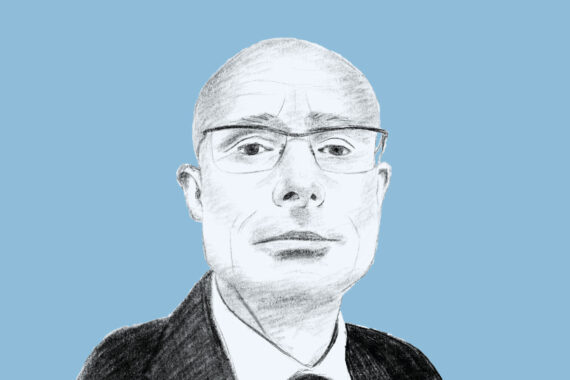Dr David Turner on how guidelines are hindering the development of independent thinking when it comes to problem solving as a doctor
I was reflecting recently on the themes that emerged from the Pulse PCN conference in November.
My notes from the day reflect some general themes: streamlined processing, electronic algorithms, group consulting, mechanised systems and herding of patients.
The days of tailored care – if not already gone – are certainly close to the end.
Many of the medical students I teach have also recognised this. I was talking about the importance of developing the art of independent thinking in problem solving as a doctor and one student said, ‘The university seems to focus excessively on teaching and testing us on NICE guidelines.’
This is wrong. UK medical students are at medical school, not NHS school. They are paying good money to learn the art of medicine, not how to be automatons of a centrally controlled taxpayer funded health service. Yes, most will probably end up working in the NHS, but that is not the point. The NHS should train them in the skills needed to work in its organisation, not medical schools.
The reason it takes a long time to become a doctor is because it is difficult. I do not believe that you need to be super intelligent to be a good doctor, but I do believe that you need to have the ability to work very hard, persevere and endure adverse circumstances and, most of all, think independently and make decisions based on your training and experience.
Guidelines are just that: guides. Ultimately, the buck stops with you as a senior doctor and you need to be able to defend your action. Sadly, I am not sure that medical schools are emphasising the importance of this enough.
In the technological age, the temptation is to believe that computers can solve all our problems. It is true that artificial intelligence can now write prose and produce art, but I doubt the work of any computer will be serious competition for Van Gogh or Fyodor Dostoevsky any time soon.
Maybe a faceless, algorithm-driven health service is good enough for some patients, but it is certainly not suitable for all. In the same way that computer-generated music might be adequate entertainment in a lift, but not in the Royal Albert Hall.
After 22 years as a GP, I am still regularly surprised by the quirky and unusual way symptoms and conditions present. There is no software in the world that could untangle the convoluted way some patients express themselves and what they are suffering from.
Perhaps the brave new world after my retirement will involve diagnosis by circuit boards, but while I continue to have the strength to wield a stethoscope, NICE guidelines and IT will very much continue to play second fiddle to my cerebral hemispheres.
Dr David Turner is a GP in Hertfordshire. Read more of his blogs here
Pulse October survey
Take our July 2025 survey to potentially win £1.000 worth of tokens














I agree with all of this. Nowadays, it seems more important that protocols are followed than whether or not patients get better.
Completely agree
Completely agree also but this subject is not getting the attention it should. I wonder whether the change from the Bolam test of a medical fault to the guideline test is at the root of the problem. With the bolam test our treatment would be judged by what a reasonable group of doctors would have done under the same circumstances. The guidelines test is like being judged by a vast and intricate textbook and most of us would fail on some small detail of other. This drives for very defensive practice with the need to use templates and the recording of huge amounts of negative findings. Every consultation becomes long and tedious and the waiting list grows and patient satisfaction falls. The amount of complaints and legal costs have gone up with the guideline system so nobody wins.
Patients do not folllow guidelines. One of my very overweight weathly diabetics told me proudly that he had finally got a grip on his health and had managed to lose 2 stone. I shook his hand to congratulate him and asked how he had finally managed this. ‘Easy’ he said, ‘all I had to do was take up smoking’.